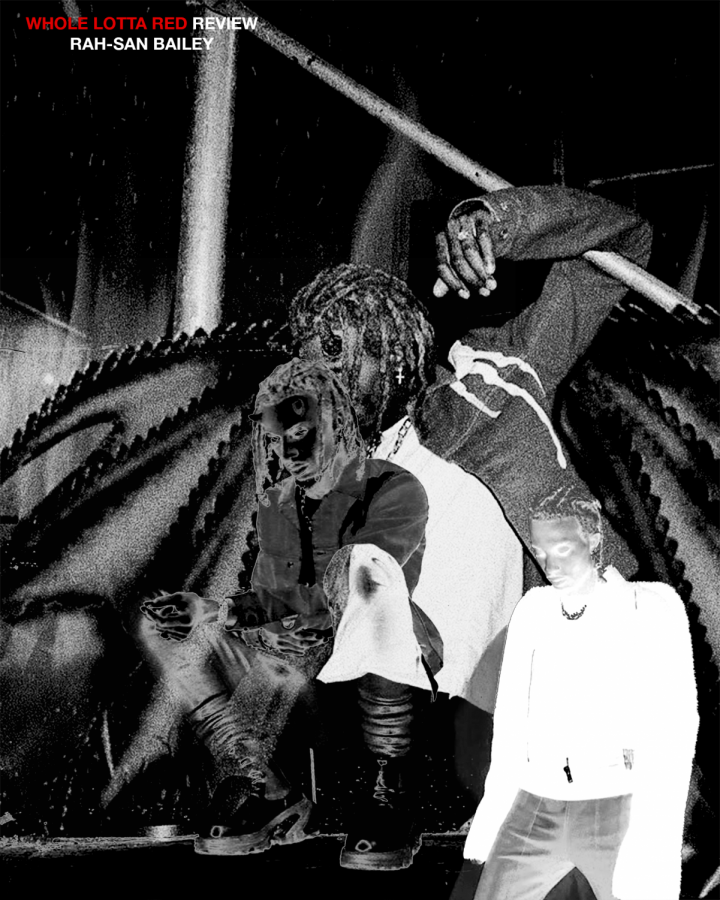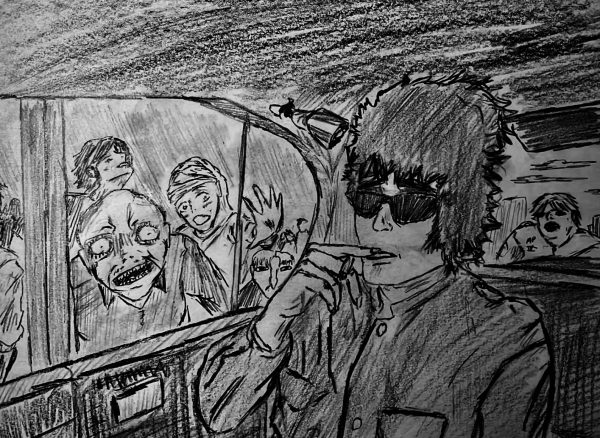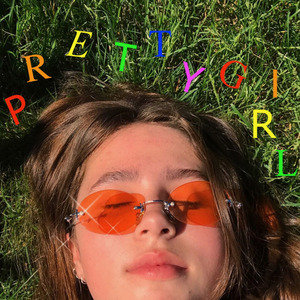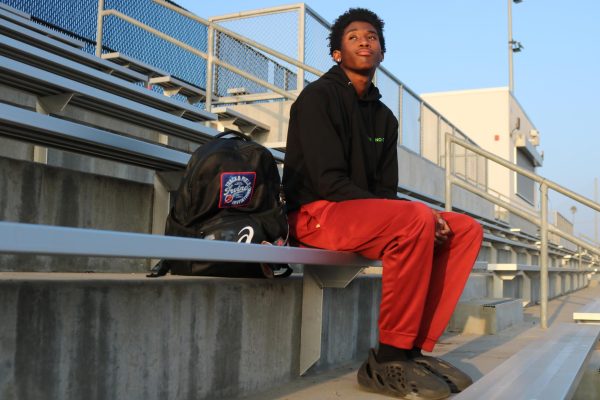Review: Whole Lotta Red Explores New Side of Playboi Carti’s Psyche
Reading Time: 4 minutesMy favorite albums have without a doubt been the ones that took some time to grow on me. The ones I’ve always gone back to are those which I felt in some way deserved a second chance based off of a plethora of factors.
The time it took for me to fall in love with Playboi Carti’s sophomore album Whole Lotta Red reminds me very much of the love-hate relationship I’ve had with myself in my formative years. With that I’ve come to draw a deeper connection to the album even prior to taking a deeper look at the themes it addresses.
One of the most interesting things about the album isn’t even the album itself. Prior to its release, there was a drought of official Playboi Carti content for a two-year span. In spite of that, the fans actively persisted in finding and consuming every ounce of Carti content they could find.
Something the Soundcloud era of rappers seem to struggle heavily with is leakers, people who steal content and sell it on the internet. These leakers had a detrimental effect on the album’s release, making three different versions of Whole Lotta Red available to the public. The third variation ended up as the official release.
A lot of what garnered hype for the album were the standards set by the first two adaptations in the form of leaks and looping snippets. While they almost indefinitely postponed the release, the final product ended up radically different from what Carti fans expected from him.
Some immediately default to referring to this album as Carti’s Yeezus, a designation that usually signifies breaking off from the norm and going in a different musical direction. On that front, Whole Lotta Red definitely delivered with its employment of 8-bit video game-esque loops and angry and aggressive 808s. While I don’t necessarily agree with the ruling of the album’s genre as punk trap, I can appreciate its sonic uniqueness. What Whole Lotta Red does differently, rather than being interlaced into the production, is Carti’s own sound. A lot of what’s so new to us in this album was hinted at in previous projects. “R.I.P.” from his debut album Die Lit sounds like it would fit right into the track list, sharing the angry vibe that many of the songs from Whole Lotta Red have in excess.
All that being said, Whole Lotta Red is a sixty-three minute experience that’s gone from jarringly bad upon first listen to exceedingly entrancing. The album starts off on a weak note, a completely foreign play for Playboi Carti as his previous projects have always had intros that stick long past the closure of your music listening service.
On first listen, “Rockstar Made” had nearly demoralized me from finishing the album—now, I simply let the song play absent-mindedly when it comes on. Despite a weak opening, the holy trifecta emerges with the sequence of “Go2DaMoon,” “Stop Breathing,” and “Beno!,” which encapsulates the tone of the album from here on.
“Go2DaMoon” has such an interesting shift in dynamic, with the switch from Kanye West’s to Carti’s verse initially catching me off guard. Outside of their energy, the subject matter goes from Kanye talking about luxury cars and biblical references to Carti discussing how his “opps” have met an unfortunate end.
Similar to those prevalent in Carti’s previous discography, themes throughout the album range from drug use, violence, and most interestingly, his love life. Usually working all three into a track at once, Carti can produce a love song like no other. Seen on “Control” is Carti losing grip on the version of himself that he’s become so familiar with and replacing it with someone who can support and thrive in a romantic relationship.
But while he actively tries to better himself for his partner, he realizes that he’s stuck in his ways. Despite that, he still loves them and is willing to stick with them. Ironically enough within the same album he states the distrust he has for his partner, absolutely 180-ing and opting to fall victim to his trust issues. On “Sky”, he essentially states that he intends to cut her off due to his distrust.
Near the end of the project are two very interesting tracks sequenced near each other.. “ILoveUIHateU” is a very on-the-nose title for his love-hate relationship with the substances that he’s grown addicted to. The chorus is incredibly alarming and raised my eyebrow upon further investigation. The first line (while seemingly lighthearted and catchy) is Carti feeling like he’s used and becoming attached to lean, an addictive concoction of cough syrup, soda, and hard candy, so much that he intends to dye his hair red to further express his love for it.
Immediately after acknowledging his attachment to the drug, he uses promethazine with full understanding that as a result his days are numbered, then going on to talk about how he’s unable to form deep relationships as a result of his addictions and mindset.
“I’m thinkin’ ’bout dyin’ my hair red just to look like a pint of red
I like all of my cups so dirty, I been sippin’ that Bloody Mary
I mix all of my problems and Prometh’ until I roll on my death bed
I mix all of my problems and Prometh’ until I roll on my death bed
Don’t get close, uh, baby, don’t get too close
Don’t get close, yeah, baby, don’t get too close
What you don’t know, it won’t hurt ’cause you don’t know (What?)
What you don’t know (Yeah), it won’t hurt ’cause you don’t know”
The last part being that he feels better off when people don’t know about his problems as it protects them from his own personal demons.
The final (and probably most interesting song on the album) is “F33L Lik3 Dyin’” as it serves as a look into Carti’s current state of mind and emotional state. Carti still feels like he’s on the right path and constantly moving upward,but despite that, he knows that it’s becoming harder to continue without love. The song also has a Bon Iver sample, adding a particularly interesting element to its sound. This song was an incredibly distinct change in style from what we’re used to, serving as the most ear-catching bite on the record.
My favorite thing about this album is that it’s impossible to say that it sounds like “the same old Carti.” He actively experiments with and tries new things throughout the project and it feels fresh. While I had different expectations for the album upon release, I dreaded that it would be the same familiar sound after waiting two years with no music. What I ended up getting is something that I’ll probably annoy my kids with once my youth expires. One can only hope.












Tiya Mengesha • Feb 12, 2021 at 3:59 PM
AYEEEEE